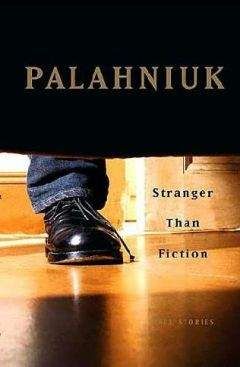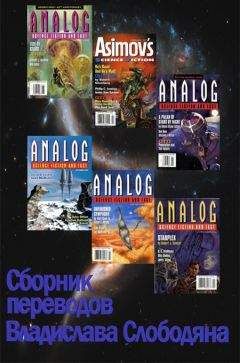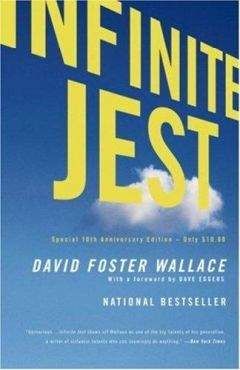Right away Little Green Men loses its rear end and sits dead in a corner. Jaws rams the rear end of Beaver Patrol, killing it on the spot. BC Machine darts around the ring, filling the arena with steam from its spouting radiator. As a Burlington Northern freight train speeds past, blowing its whistle above the demolition noise, Jaws finds itself stuck, its header hooked under the dead rear end of Beaver Patrol. Porker Express crushes the ass end of Mean Gang-Green. The Turtle hides out, sitting with its rear wheels braced against the edge of the ring, where no combine can hit it without forcing it into the packed crowd. The Porker Express stops, dead. The Turtle ventures out to hit Rambulance, which now has no rear axle. In a corner Little Green Men sits dead, Cochrane's silver radar dish still spinning.
Hiding out at the edge, number 11, the Turtle, isn't a crowd favorite. "Some say I'm a sandbagger," says Schoesler, its driver. "That I just avoid contact a little too much. I like to think of it as the old Muhammad Ali rope-a-dope. Lay on the ropes and let them pound you where it doesn't hurt. And if there's an opening, you jab them and then retreat. It's worked pretty well over the years."
For Schoesler, who represents the Ninth Legislative District in the Washington State House of Representatives, the derby is a chance to campaign. He's planning to run for the State Senate.
"Being an elected official always generates a few jabs," he says. "All in fun, I hope. And a winner from a previous derby is a marked man. Having won in the past, I'm a target. Being an elected official makes me a double target."
In the arena now, BC Machine still fills the air with steam, and sparks shoot from its engine. The Turtle hides back, safe against the crowd of spectators.
Rambulance drops its flag. Mean Gang-Green rams the Turtle, driving it back into the crowd. J&M Fabrication rams the Turtle, and the dead combines sit, black and wrecked, just obstacles in the dark smoke- and steam-filled arena. The Turtle tries to escape and ends up pinched between Good Ol' Boys, Mean Gang-Green, and J&M Fabrication. BC Machine stops dead but with its radiator still steaming. The Turtle escapes, leaving its three attackers to slam one another. The header on J&M is still factory perfect, but the combine has no steering left in its ass end. You can smell hot, bitter brake fluid, and J&M Fabrication stops, with Miller stooped down, trying to restart the engine. The header drops off Mean Gang-Green, and Hardung is out. The Turtle still hides at the edge. Good Ol' Boys can hardly steer.
As the clock runs out, the judges rule. The money for first and second place is split between Mean Gang-Green and the Turtle. Good Ol' Boys takes third.
By 10:00 P.M. it's over, except for the serious drinking. Already cowboy boots kick up dust on their way to the parking lot. Country music mixes with hip-hop, and the air turns pink from thousands of taillights and brake lights waiting to turn onto the highway.
Terry Harding and the team for Red Lightnin' say, "Find us come midnight or one o'clock and we'll be blitzed."
Kevin Cochrane will go back to studying agriculture at Washington State.
Frank Bren will go back to driving his grain truck.
Mark Schoesler will no doubt go back to state government for another term. And the combines-Red Lightnin', Jaws, Beaver Patrol, Orange Crush-will sit parked and rusting until it's time to fix them and crash them and fix them and crash them, again and again, next year.
This is the way the men of Adams County come back together. The farmers, now working at jobs in the city. The families spreading apart. The kids, whose shared years in high school get further and further behind them. This is their structure of rules and tasks. A way to work and play, together. To suffer and celebrate. To reunite.
Until next year, it's all over. Except for tomorrow's parade. The rodeo and the barbecue. The stories and the bruises.
"They'll all be walking stiff tomorrow," says derby organizer Carol Kelly. "They'll have sore shoulders and arms. And their necks, they'll barely be able to turn their heads."
She says, "Of course they get hurt. If they tell you otherwise, they're lying so you think they're tough."
The faces that make eye contact, they're twisted into sneers. The top lip pulled up to show teeth, the whole face bunched around the nose and eyes. One blond Huck Finn kid walks along after us, slapping our legs and shouting, "I can see your NECK! Hey, asshole! I can see your neck from behind…"
A man turns to a woman and says, "Christ, only in Seattle…"
Another middle-aged man says, loud, "This town has gotten way too liberal…"
A young man with a skateboard under one arm says, "You think you're cute? Well, you're not. You're just stupid. You look fucking stupid…"
This wasn't about looking good.
As a white man, you can live your whole life never not fitting in. You never walk into a jewelry store that sees only your black skin. You never walk into a bar that sees only your boobs. To be Whitie is to be wallpaper. You don't draw attention, good or bad. Still, what would it be like, to live with attention? To just let people stare. To let them fill in the blank, and assume what they will. To let people project some aspect of themselves on you for a whole day.
The worst part of writing fiction is the fear of wasting your life behind a keyboard. The idea that, dying, you'll realize you only ever lived on paper. Your only adventures were make-believe, and while the world fought and kissed, you sat in some dark room, masturbating and making money.
So the idea was, a friend and I would rent costumes. Me, a spotted, smiling Dalmatian. Her, a brown dancing bear. Costumes without gender clues. Just fun-fur suits that hid our hands and feet and big, heavy papier-mâché heads that kept anyone from seeing our faces. This gave people no visual clues, no facial expressions or gestures to decode-just a dog and a bear walking around, shopping, being tourists in downtown Seattle.
Some of this I knew to expect. Every December, the international Cacophony Society hosts a party called "Santa Rampage" where hundreds of people come into a city, all of them dressed as Santa Claus. No one is black or white. No one is young or old. Male or female. Together they become a sea of red velvet and white beards storming the downtown, drinking and singing and driving the police nuts.
At a recent Santa Rampage, police detectives met an arriving planeload of Santa Clauses at the Portland airport, corralling them with guns and hot pepper spray and announcing, "Whatever you're planning, the city of Portland, Oregon, will not look upon it kindly if you burn Santa Claus in effigy…"
Still, five hundred Santas has a power that a lonely bear and dog do not. In the lobby of the Seattle Art Museum they sell us tickets for fourteen bucks. They talk to us about the exhibits, the portraits of George Washington on loan from the nation's capital. They tell us where to find the elevators and give us museum maps, but the moment we push the elevator button-they throw us out. No refund for the tickets. No slack. Just a lot of sad head shaking and a brand-new security policy that bears and dogs may buy tickets but they may not look at the art.
A block away from the museum doors, the guards still follow us, until a new group of guards from the next building has us under surveillance. Another block down Third Avenue, a Seattle Police car cruises up, following us at a creep as we head north to the retail shopping center.
In the Pike Place Market, young men wait for the dog to walk past, then throw punches or karate kicks into the black-spotted fur. Right in the kidneys. Into the back of my elbows or knees, hard. Every time, every kick and fist. Then, these same men, they jump back, rolling their eyes at the ceiling and pretending to whistle as if nothing has happened.
These people behind mirrored sunglasses, dressed alike behind the stiff attitude of hip-hop and skateboards, being young downtown and looking to fit in. Outside the Bon Marché, along Pine Street, young men throw rocks, denting the papier-mâché heads and pounding the fur. Young women run up in groups of four or five, holding digital cameras the size of silver cigarette packs and clutching the dog and bear as photo props. Squeezed in, smiling with their breasts pressing warm and their arms around an animal neck.
The police still trailing us, we run inside the Westlake Center, running past Nine West on the first level of the shopping mall. Running past the Mill Stream store-"Gifts from the Pacific Northwest"-we're running past Talbots and Mont Blanc, past Marquis Leather. People ahead of us pull back, standing tight against Starbucks and LensCrafters, creating a constant vacuum of empty white floor for us to run into. Behind us, walkie-talkies crackle and male voices say, "… suspects are in sight. One appears to be a dancing bear. The second suspect is wearing a large dog head…"
Kids scream. People pour out of the stores for a better look. Clerks come forward to stare, their faces peering from behind sweaters and wristwatches in display windows. It's the same excitement we felt as kids when a dog got into our grade school. We're running past Sam Goody, past the Fossil store, the walkie-talkies right behind us, the voices saying, "… the bear and the dog are westbound, headed down the first-level access way to the Underground Eatery…" We're running past Wild Tiger Pizza and Subway Sandwiches. Past teenage girls sitting on the floor, yakking on the pay phones. "Affirmative," the walkie-talkie voice says. From behind us, it says, "… I'm about to apprehend both alleged animals…"
All this fuss, this chase. Young men stone us. Young women grope us. Middle-aged men look away, shaking their heads and ignoring the dog that waits in line with them at Tully's for a grande latte. A middle-aged Seattle guy, tall with a blond ponytail and his pants rolled to his knee, exposing bare calves, he walks past, saying, "You know, there's a leash law in this town."
An older woman with her beauty parlor hair silver-rinsed and sprayed into a pile, she tugs at one spotted dog arm, tugging the fur and asking, "What are you promoting?" She trails along, still tugging the fur, asking, "Who's paying you to do this?" Asking louder, "Can't you hear me?" Saying, "Answer me." Asking, "Who do you work for?" Saying, "Tell me…" She's clutching us for half a block, until her grip breaks.
Another middle-aged woman, pushing a stroller the size of a grocery cart, packed with disposable diapers, formula, toys and clothes and shopping bags, with one tiny baby lost somewhere in the mix, in the concrete middle of Pike Place Market, this woman shouts, "Everyone get back! Get back! For all we know they could be strapped with bombs inside those costumes…"
Everywhere, there's the brain scramble as security guards create public policy to deal with people dressed as animals.
A friend of mine, Monica, used to work as a clown for hire. While she twisted balloons into animals at corporate parties, men were always offering her money to fuck. Looking back, she says that any woman who'd dress as a fool, who'd refuse to look attractive, she was seen as loose, wanton, and willing to fuck for money. Another friend, Steve, wears a wolf costume to Burning Man each year and fucks his brains out because, he says, people see him as less than human. Something wild.
By now, the backs of my knees hurt from taking kicks. My kidneys ache from getting punched, and my shoulder blades from pitched rocks. My hands are running with sweat. My feet are sore from too much walking on concrete. On Pine Street young women drive past, waving from cars and screaming, "We love you…"
All these people behind their own masks: their sunglasses and cars and fashions and haircuts. Young men drive past, screaming, "Goddamn fucking FAGS…"
By now, I don't give a shit. This dog could walk around this way forever. Walking taller. Blind and deaf to people's shit. I don't need to wave, to pander and pose with kids for pictures. I'm just a dog smoking a cigarette outside Pottery Barn. I lean back, one leg lifted against the facade of Tiffany and Company. I'm just the Dalmatian making a cell-phone call in front of Old Navy. It's the kind of cool, a feeling of being self-contained, that white guys can live a lifetime without.
By now it's sweating hot. It's late afternoon, and FAO Schwarz is almost deserted. Inside the big glass doors, a young guy is dressed as a toy soldier in a red tailcoat with a double row of brass buttons and a towering black helmet. The escalators are empty. The Barbie Shop is empty. The toy soldier plays with a radio-controlled race car, alone and trapped inside on the first sunny day Seattle has seen in months.
The toy soldier looks up from his job, at the dog and bear coming through the door, and he smiles. Ignoring his race car, letting it drive into a wall, the soldier says, "You guys rock!" He says, "You SO totally rule."
When you're flying from Seattle to Portland, Oregon, as you turn to make your final approach into the airport from the east, there, outside the airplane windows, right below you… there it is:
A vision of white battlements and towers. Narrow white turrets and a drawbridge that spans a murky lake, its water pooling around a crumbling stone ruin. At one end, stands a massive round keep.
There, in the hills above the blue-collar town of Camas, Washington, where most days the air smells like the sour steam from the paper mill, there it is:
A castle.
A big castle. A real castle.
It's surrounded by little hobby farms and tract housing developments and the huge postmodern complex of the new Camas High School, but this is a Viking castle. Complete with racks filled with battle-axes, ready for the next fight. A fire-breathing dragon. Gates sixteen feet tall. All that and a Bunn coffeemaker. A Frigidaire refrigerator and Jerry Bjorklund, the builder and resident Viking.
Fly four hundred miles northeast, into the Selkirk Mountains on the Idaho panhandle, and you'll find a Bavarian-style castle perched in the snow fields at 4,600 feet. A fortress of stone and stained glass with a heated indoor swimming pool, double-fisted chunks of semiprecious yellow citrine, purple amethyst and pink-rose quartz embedded in the walls. Arches and pinnacles and spires, all of it hand-built, rock by rock, by a single man named Roger DeClements.
And somewhere between the Viking and the Bavarian is a tall narrow tower of four floors rising from a rocky point at the edge of the White Salmon River. In this third castle, a nude mannequin sits on the rail of a third-floor balcony, ready to distract the white-water rafters and kayakers who drift past and only glimpse her bare breasts for a minute before the river pulls them around the next bend and leaves them wondering what they saw. Or thought they saw: a cluster of gray stone towers. Heavy timber balconies. A waterfall trickling, green, down the front of a stone terrace. Massive canopy beds and antique armoires and an ex-jet fighter pilot named Bob Nippolt.
There, deep in the woods of the Cascade Mountains, it's a vision… a fantasy.





